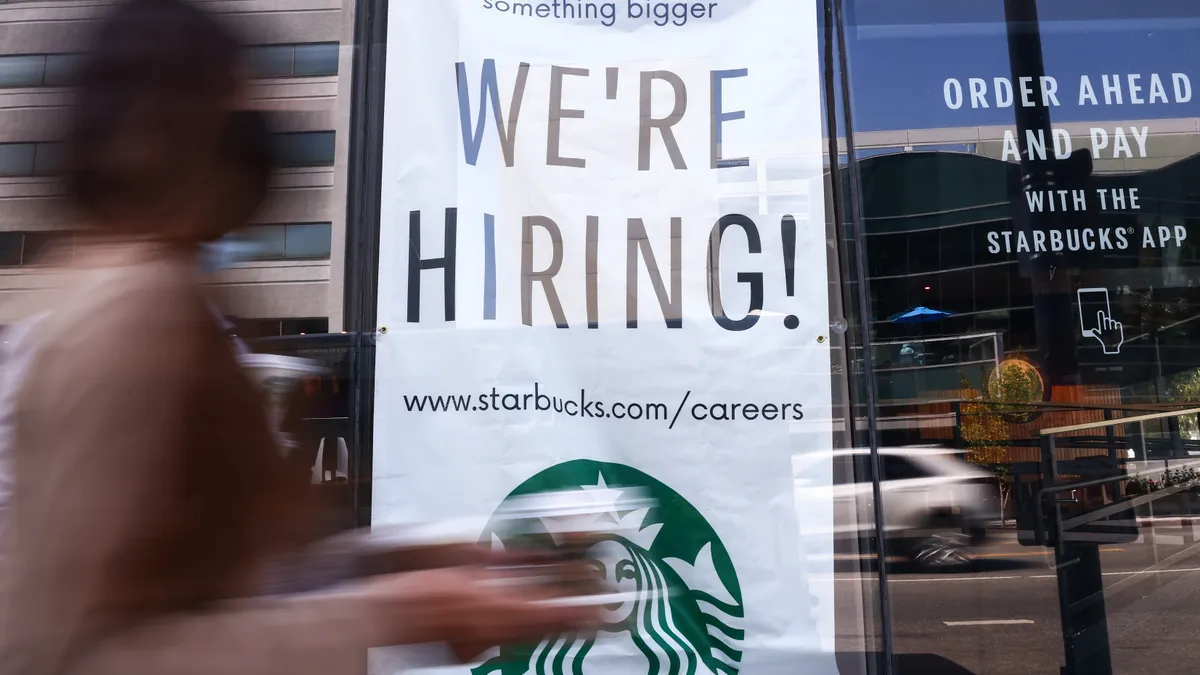Amid union turmoil, Starbucks is now facing a lawsuit alleging racial prejudice against White job candidates. On behalf of the National Center for Public Policy Research (NCPPR), a shareholder, the American Civil Rights Project filed the lawsuit, National Center for Public Policy Research v. Howard Schultz et. al, No. 22-2-02945-32, Aug. 30 in the State of Washington Spokane County Superior Court.
“Starbucks has set goals for the number of ‘diverse’ — meaning not-White — employees it hires, and those goals are tied to executive compensation. That is outright racial discrimination,” Scott Shepard, NCPPR’s Free Enterprise Project director, said in an Aug. 31 press statement. According to the lawsuit, the plaintiff warned Starbucks leadership of “their policies’ illegality” and how it “invited a nearly endless collection of meritorious lawsuits, bringable by a nearly innumerable collection of private and public claimants.”
The coffee chain started linking executive compensation to DEI goals in fiscal year 2021. Named in the suit are Interim CEO Howard Schultz, COO John Culver, CFO Rachel Ruggeri, Chief Ethics and Compliance Officer Tyson Avery, and CIDO Dennis Brockman, among others. NCPPR mentioned Starbucks’ Inclusion, Diversity and Equity commitment page and its goal of “achieving BIPOC representation of at least 30% at all corporate levels and at least 40% at all retail and manufacturing roles by 2025.”
Officers and directors who act on these “discriminatory policies are violating their fiduciary duties to their shareholders and should be held accountable for those actions,” Shepard continued. The NCPPR also called out the coffee company’s entry into the Board Diversity Action Alliance — a collective composed of industry peers such as Albertsons, PepsiCo, MasterCard, UnderArmour and UPS. “It cannot be in the best interests of any shareholders for Starbucks’ executives and directors to steer the company into violating a huge array of civil rights law by discriminating on the basis of race,” Shepard added. “Those officials ought to be ashamed of themselves and must be held liable.”
The lawsuit itself took similar positions, arguing that “Starbucks, acting through its officers and directors, crafted and publicized these policies with fanfare, preening over the supposed moral virtue their adoption signaled.” The complaint took aim at the individuals, personally, saying they “should (and did) know better.”
It’s not uncommon for companies to implement diverse hiring practices — especially in the wake of summer 2020’s anti-racism renaissance, following the police murder of George Floyd and killing of Breonna Taylor. Two years down the line, all Fortune 100 companies have DEI commitments, including hiring initiatives, available for public perusal; this list includes old-school American business leaders like Walmart, Home Depot, General Motors, Coca-Cola, Chevron and Exxon Mobil.
Many companies have taken the extra step to tie executive compensation to C-suite follow-through regarding equity and inclusion goals. Prior to Starbucks’ announcement, Wells Fargo had made a similar announcement in June 2020; Uber announced its DEI compensation policy in July 2019. Research firm Semler Brossy published research in January 2022 noting that 28% of S&P 500 companies included DEI as a metric in their executive incentive plans the year prior. (The S&P 500 index overlaps with the Fortune 500, including leaders in food manufacturing, gas, health care and the supply chain business.)
Similarly, Mercer has been tracking environmental and social governance metrics among S&P 500 executive incentive plans; in April 2022, researchers noted an increase in ESG incentive disclosure, from 35% to 46% of plans. Based on positive responses to forward-looking statements, researchers said, “It is likely that at least 70% of S&P 500 companies will disclose a pay program that incorporates ESG metrics of accomplishments in some form next year.”













